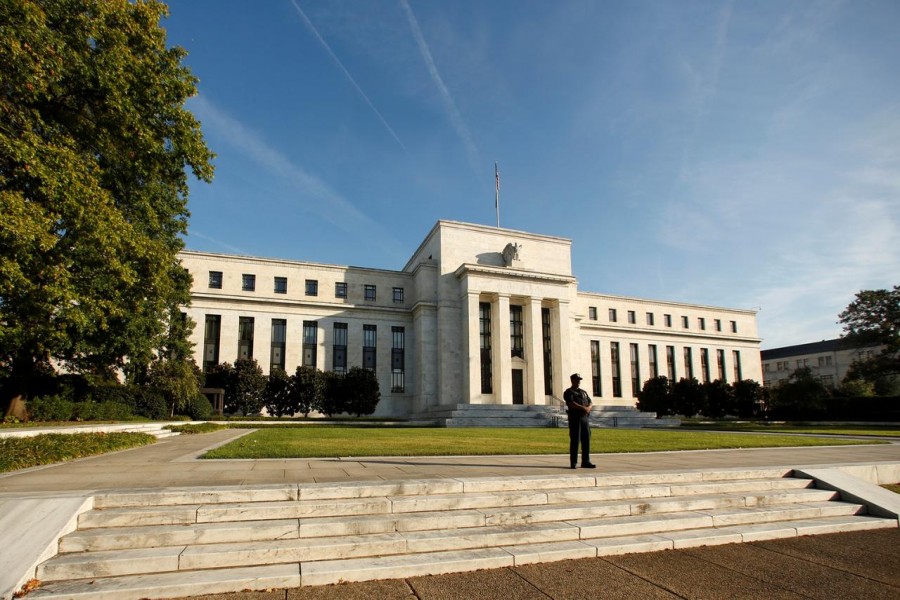US Fed officials warn of downside risks from rising trade uncertainty

Published :
Updated :

US Federal Reserve officials have warned of downside risks to the US economy from rising trade uncertainty, as monetary policy is not well suited to address adverse effects of trade disputes.
"Trade policy uncertainty seems to be playing a role in the global slowdown and in weak manufacturing and capital spending in the United States," Fed Chairman Jerome Powell said Friday at the Kansas City Fed's annual research conference in Jackson Hole, Wyoming.
"While monetary policy is a powerful tool that works to support consumer spending, business investment and public confidence, it cannot provide a settled rulebook for international trade," he said.
Powell's views were echoed by other Fed officials, academics and central bankers from around the world attending the event.
"I think what the Chair indicated...is we in the U.S. don't have a lot of experience with how the economy will respond to this," said Fed Vice Chairman Richard Clarida.
"Because the last 50 years really has been a period of trade liberalization and we are into a different period now," Clarida told CNBC on Friday, adding uncertainty about trade policy "is having a dampening effect" on investment and on economic activity in certain sectors.
US economic growth slowed to 2.1 per cent in the second quarter of this year, marking a sharp slowdown from the 3.1-per cent expansion in the previous quarter. Despite strong job growth and solid consumer spending, manufacturing output has declined for two consecutive quarters, and business fixed investment fell in the second quarter, Xinhua reports.
"No doubt this uncertainty around trade is going to be a drag on the economy. How much of a drag is that what we're trying to assess," said Cleveland Fed President Loretta Mester.
"What I want to focus on is, is that it's spilling over to the broader economy? Are firms now going to say there's so much uncertainty out there that not only am I not spending, I also may have to reduce my plant hiring," Mester told Yahoo Finance on Friday, adding she will be watching how businesses and consumers react to the trade uncertainty.
Kansas City Fed President Esther George noted on Thursday that the agriculture community in her district has experienced low farm incomes for a number of years, and escalating trade tensions contributed to further loss for farmers.
"Having markets disrupted, particularly for example in the soy bean production area has been another leg down for the AG sector. And so, this puts pressure on an already difficult situation," she said.
The Fed official saw the uncertainty over trade as sort of persistent at this stage. "It's hard to see how it will be resolved. So, you have to take that as it comes in terms of watching for data, it signals it's having an effect on the economy," she said.
The Fed trimmed the federal funds rate by 25 basis points to a target range of 2 per cent to 2.25 per cent last month, the first rate cut since the 2008 global financial crisis, amid rising concerns over trade tensions, a slowing global economy and muted inflation pressures. The central bank will hold its next policy meeting on September 17-18.


 For all latest news, follow The Financial Express Google News channel.
For all latest news, follow The Financial Express Google News channel.